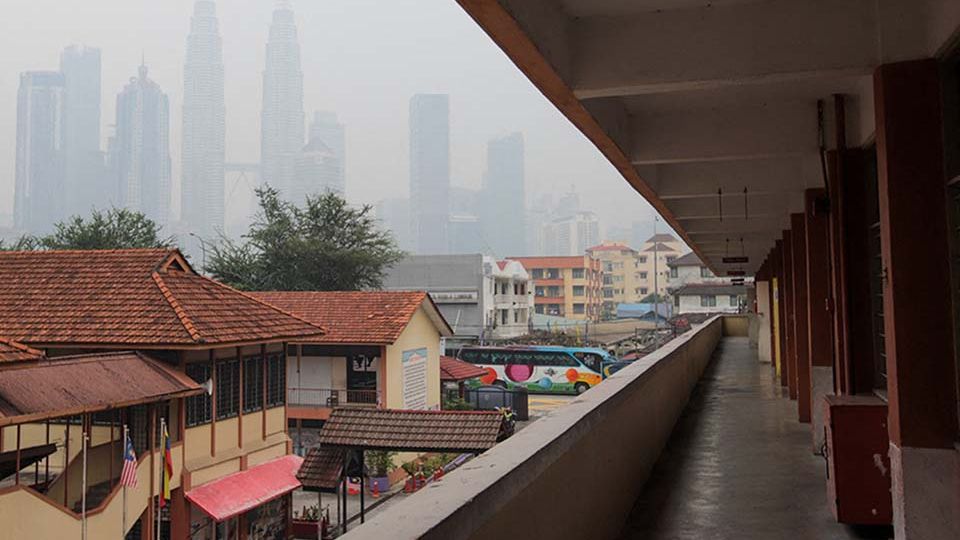October 23, 2025
KUALA LUMPUR – I WAS deeply saddened to learn about the tragic stabbing of a 16-year-old female student by a 14-year-old male student within the school compound – a place that is meant to be safe for our children. My heart goes out to the parents of the young girl whose life was cruelly taken, and to the boy’s parents who must now live with the unbearable weight of this tragedy. No parent ever sends their child to school expecting such horror.
In recent months, we have seen too many disturbing incidents – cases of bullying, violence, and the death of young Zara Qairina Mahathir in Sabah. Each time such news breaks, we express grief and outrage, but soon return to normalcy.
These are not isolated incidents. They are symptoms of something deeper – a reflection of what has gone wrong in our schools and perhaps in the moral foundation of our society.
The recent case in Melaka, where four male students allegedly raped a female student inside a classroom, is another shocking reminder of how unsafe our schools have become. When a place of learning turns into a scene of such cruelty, it exposes a moral crisis that can no longer be ignored.
A mirror of society
Schools mirror society’s values. When empathy, respect, and compassion begin to erode in our homes, workplaces, and public discourse, children inevitably absorb and replicate those behaviours.
A society that glorifies aggression and normalises disrespect cannot expect its children to grow up kind and peaceful. If our social media is filled with anger and cruelty, we should not be surprised when our young express the same in classrooms and corridors.
This is not a school problem alone. It is a societal one – requiring homes, communities, and policymakers to act together.
The overexposed generation
Today’s children live in an age of relentless exposure. Through the internet and social media, they are bombarded with violence and distorted ideals of success. They are growing up desensitised to human suffering with more information but less guidance.
Behind cheerful selfies, many hide loneliness, confusion, and emotional pain. The pressure to perform academically, to fit in, and to endure online scrutiny can be overwhelming.
We often give them devices but little direction. We emphasise grades but rarely discuss kindness. We enforce discipline but neglect emotional understanding.
A call for systemic reform
This is why the Education Ministry must embark on a holistic, long-term, and consistent programme to reshape the mindset of students – starting from primary school.
> Compassion as the core of education
We need to include compassion as a formal subject in the national curriculum.
In a multiracial and multireligious Malaysia, compassion must be taught as an all-encompassing value that transcends identity and upholds the sanctity of human life.
Teaching compassion is not idealism; it is prevention. When students learn to consider the impact of their actions on others, they become less likely to harm and more likely to help.
Such lessons should not be confined to moral or religious studies alone, but woven throughout school life: in classroom discussions, co-curricular activities, and everyday interactions.
> Mental health and emotional education
Mental and emotional health must be treated as essential. Every school needs trained counsellors, smaller teacher-to-student ratios, and systems to identify early signs of distress.
True discipline is not about punishment; it is about developing self-control and empathy. When children understand how their behaviour affects others, moral awareness follows naturally.
> Safety and vigilance
The fact that the suspect in this latest case reportedly brought a Rambo-style knife to school is alarming. How did such a weapon go unnoticed?
There must be regular spot checks by disciplinary teachers to ensure that dangerous items are not brought to school. This is not policing – it is prevention.
Likewise, frequent meetings between parents and schools should be institutionalised. The Parent-Teacher Associations (PTAs) must be revived as meaningful platforms for early intervention and joint responsibility.
Schools should also conduct regular briefings on safety, respect, and care, reinforcing that a culture of vigilance and empathy is everyone’s responsibility.
Reclaiming safe and compassionate schools
Through the Rapera Movement, we have long advocated that compassion is not merely emotion but action – understanding another’s suffering and striving to reduce it.
If our education system nurtures this mindset early, we will raise Malaysians who avoid behaviour that increases suffering and instead promote collective happiness.
Imagine if every student asked at the end of each day: “Did my actions today make someone’s life better or worse?”
For this reason, I hope the government will support civil society initiatives such as the Rapera Foundation to spread compassion programmes in schools. Collaboration between ministries and movements like Rapera can help build programmes that are human-centred and consistent with our shared national values.
Ultimately our schools must again become sanctuaries where every child feels safe, valued, and heard. Achieving this demands more than administrative changes – it requires a transformation in how we define education itself.
If we continue prioritising exam results over emotional development, we risk raising a generation that is intellectually capable but emotionally hollow.
The deaths of Zara and the recent victim must not fade into memory. They must compel us to reform – to restore compassion and rebuild schools as spaces of safety and learning.
Only through compassion – taught, lived, and institutionalised – can we restore humanity at the heart of education. When we nurture compassionate citizens, we not only prevent violence but also build a Malaysia that truly values life and dignity.
Senior lawyer Dato Sri Dr Jahaberdeen Mohamed Yunoos is the founder and chairman of Yayasan Rapera, an NGO that promotes community-based learning activities and compassionate thinking among Malaysians. The views expressed here are entirely the writer’s own.

